Articles Archive
See all articles and discover more interesting topics!
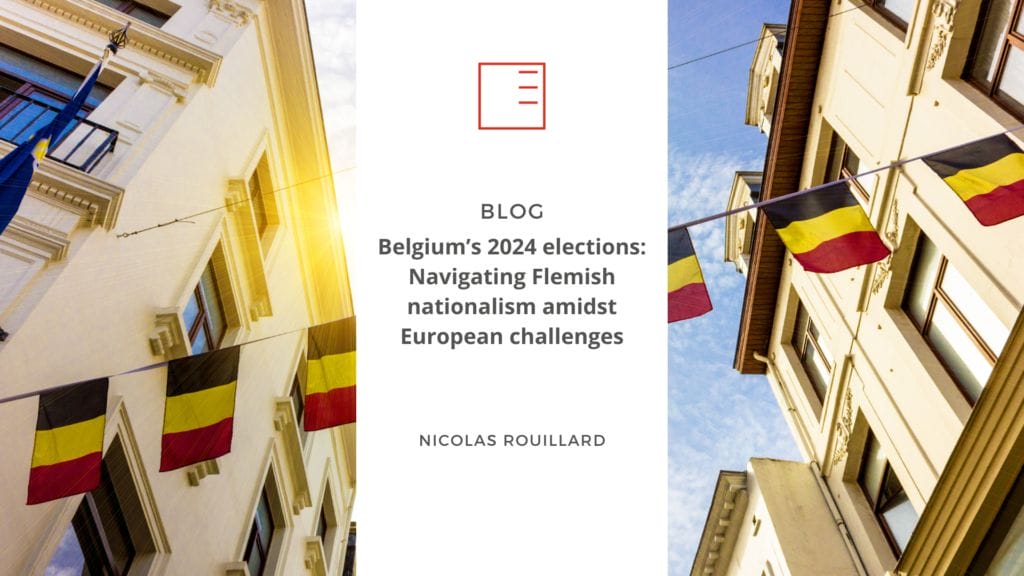
BLOG | Belgium’s 2024 elections: Navigating Flemish nationalism amidst European challenges
Belgium is gearing up for several elections this year. In addition to the European elections, Belgian citizens will also vote for the federal and regional parliaments on the same day. Although this arrangement is nothing new in Belgium, it may make it more difficult for voters to distinguish between the different election campaigns. Growing Flemish nationalism may also bring complications. These topics are addressed by Nicolas Rouillard in his new blog.
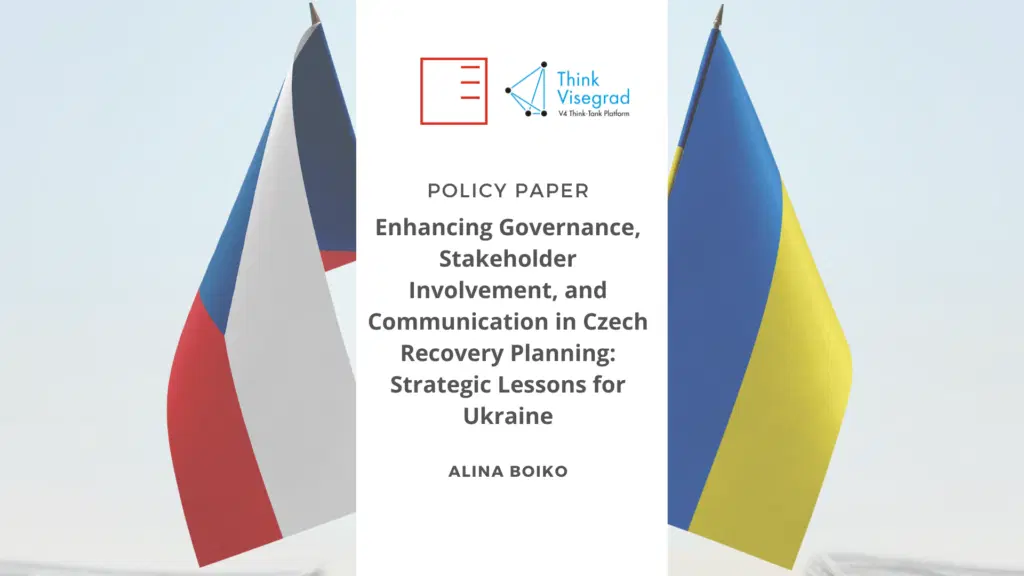
Policy Paper | Enhancing Governance, Stakeholder Involvement, and Communication in Czech Recovery Planning: Strategic Lessons for Ukraine
Can Ukraine take lessons from the Czech approach to the recovery plan? Alina Boiko focuses on the Czech implementation of the Recovery and Resilience Plan, which could help the Ukrainian authorities improve their ability to implement new policies.
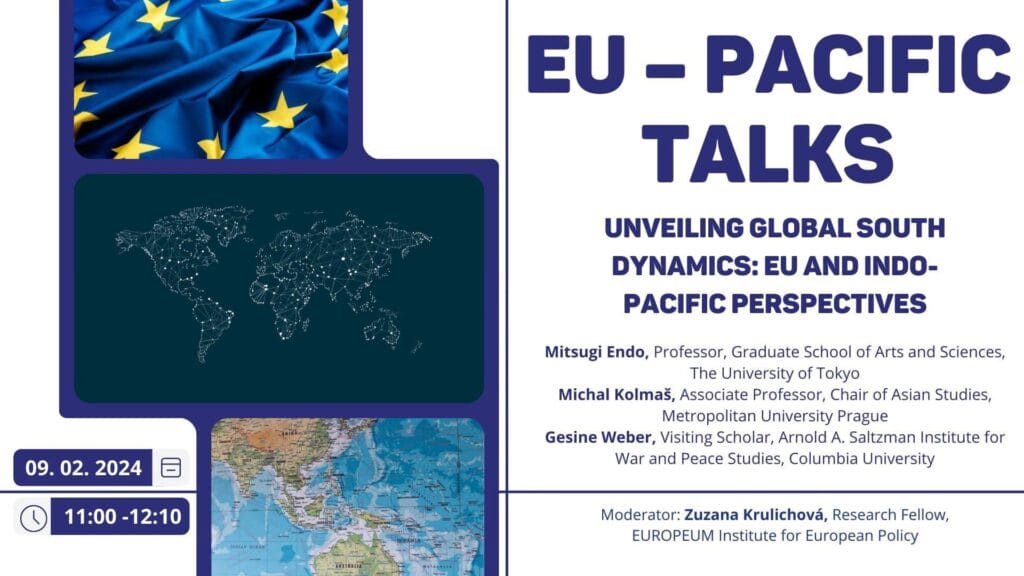
EU-Pacific Talks | Unveiling Global South Dynamics: EU and Indo-Pacific Perspectives
We would like to invite you to another debate of the EU-Pacific Talks series, this time on the topic "Unveiling Global South Dynamics: EU and Indo-Pacific Perspectives". The debate will take place on Friday, 9 February at 11:00 a.m. via an online stream on FB.
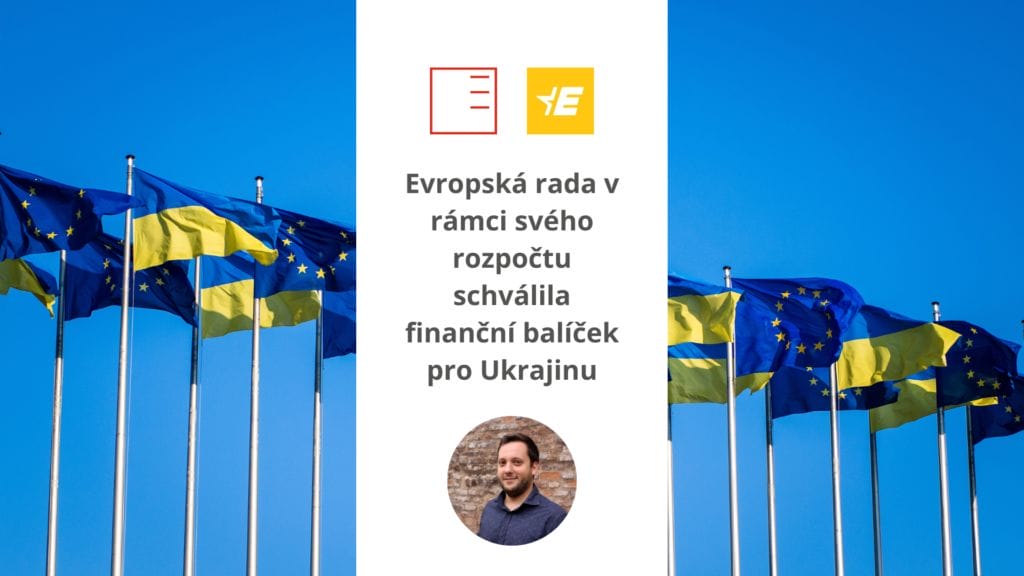
Euractiv | European Council approves financial package for Ukraine as part of its budget
An extraordinary summit of the European Council is held on 1 February. During the summit, the main topic was the financial support package for Ukraine as part of the multiannual European budget. Although the package was blocked by Hungary back in December, it has now been approved. Žiga Faktor, Director of our Brussels office and deputy director, commented on the event and its circumstances for Euractiv.

CNN Prima News | Orban backs down, EU to help Ukraine
To the surprise of many experts, Orbán decided not to prolong and complicate the negotiations at the EU summit, which in record time reached a unanimous decision on another aid package for Ukraine. Our senior research fellow Vít Havelka spoke about the situation on air.
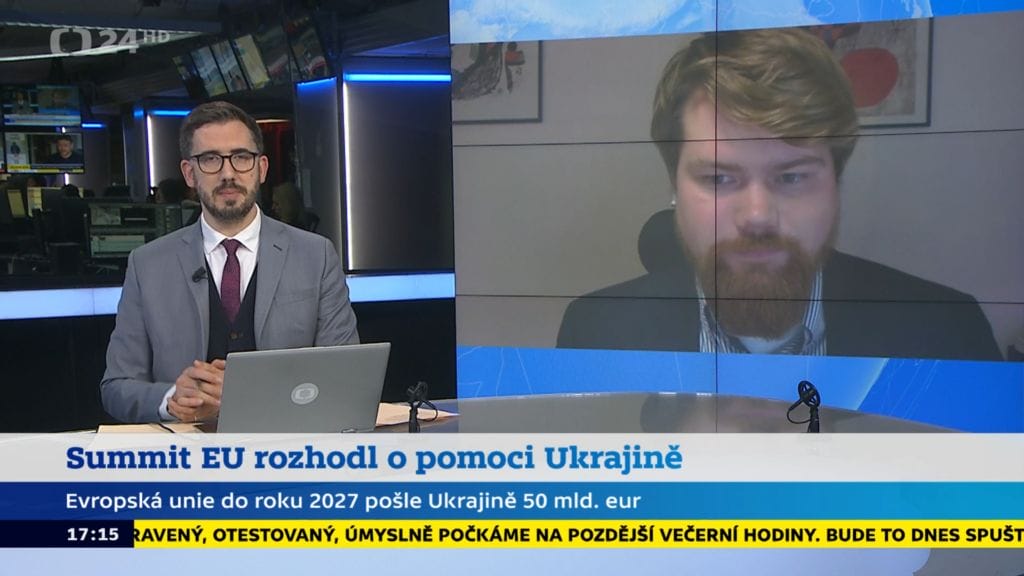
ČT24 | European leaders on aid to Ukraine
The EU Summit decides in record time on a new financial aid package for Ukraine. What are the implications of this decision and what position does it put Viktor Orbán in? Martin Vokálek, Executive Director of EUROPEUM Institute for European Policy, explains the situation.
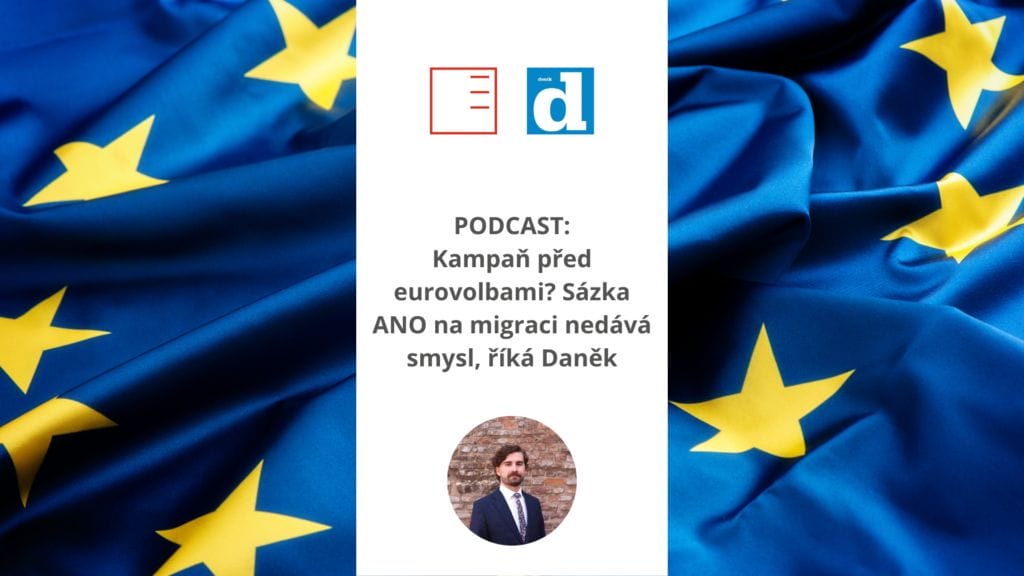
deník.cz | PODCAST: Campaigning before the EU elections? ANO's bet on migration makes no sense, says Daněk
Although the ANO movement has been part of a very pro-European liberal faction in the European Parliament for the past decade, it has said almost nothing good about the EU in the campaign leading up to the EU elections, says analyst Viktor Daněk.
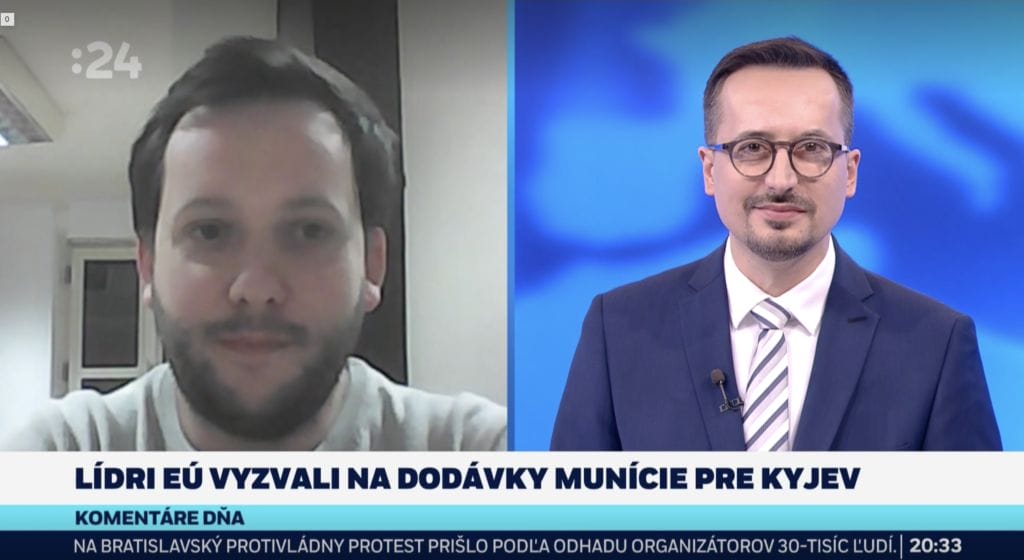
RTVS | EU leaders call for ammunition supplies to Kiev
Was Hungary's refusal to provide financial aid to Ukraine the main concern of the Summit? Watch an interview with Ziva Faktore, head of our Brussels office and deputy director, who comments on this topic for Slovak RTVS.
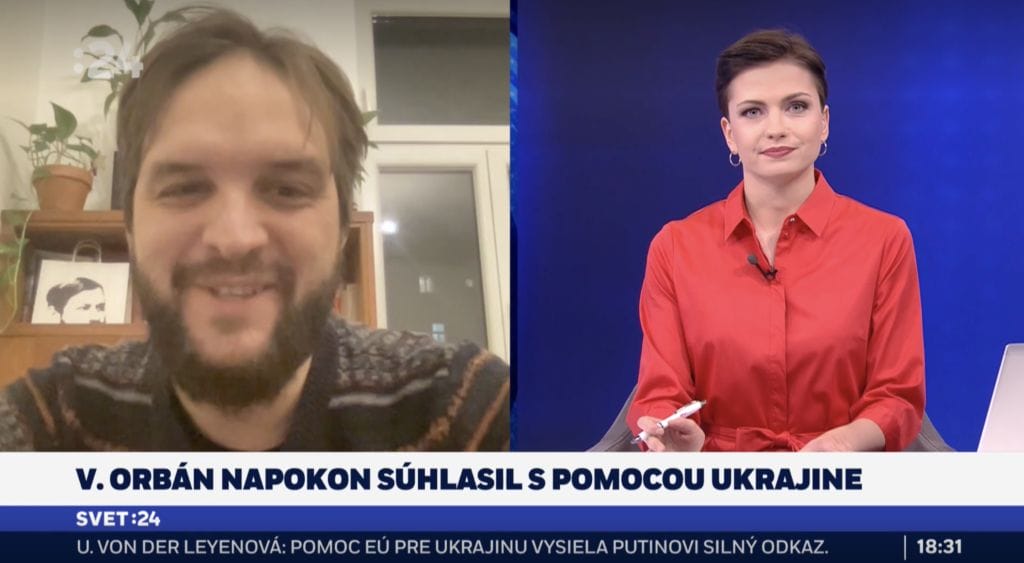
RTVS | Orbán finally agrees to help Ukraine
Vít Havelka, Senior Research Fellow, appeared on the RTVS World:24 programme, where he commented on the European aid to Ukraine, which was eventually supported by Hungarian Prime Minister Viktor Orbán.
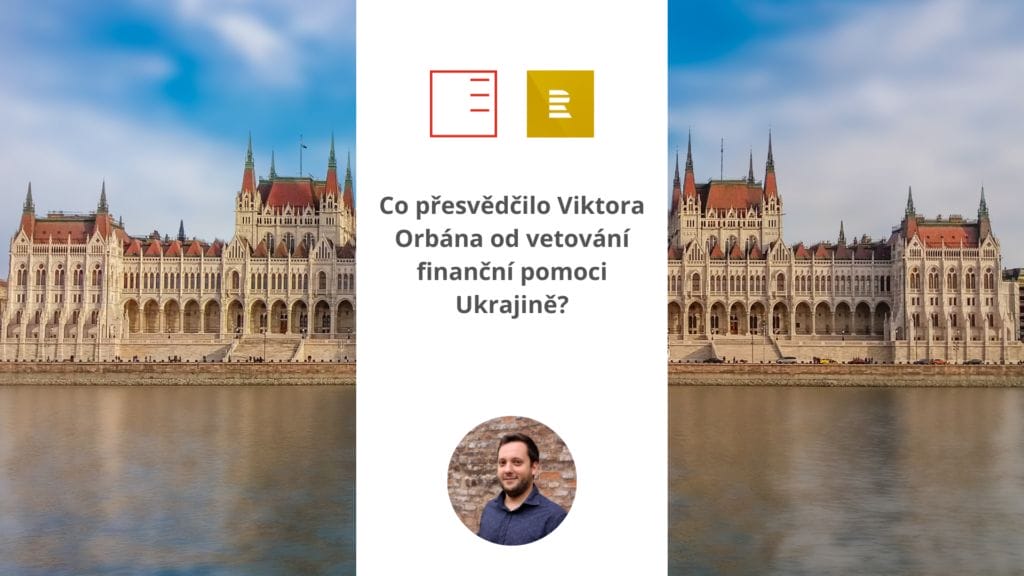
ČRo Plus | What convinced Viktor Orbán to veto financial aid to Ukraine?
Listen to the interview with Žiga Faktor, deputy director and head of our Brussels office, about what convinced Viktor Orbán not to veto financial aid to Ukraine?
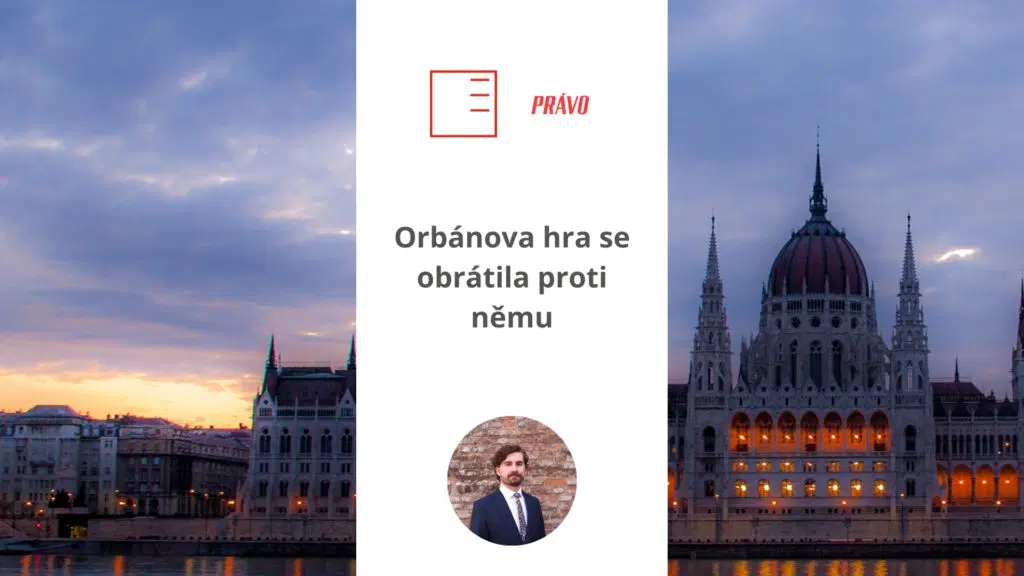
Právo | Orbán's game turned against him
One of the shortest summits in the history of the EU ended by unanimous agreement. Why were there no protracted negotiations and what position does this put Hungarian Prime Minister Viktor Orbán in? Our deputy director Viktor Daněk explains in a commentary.
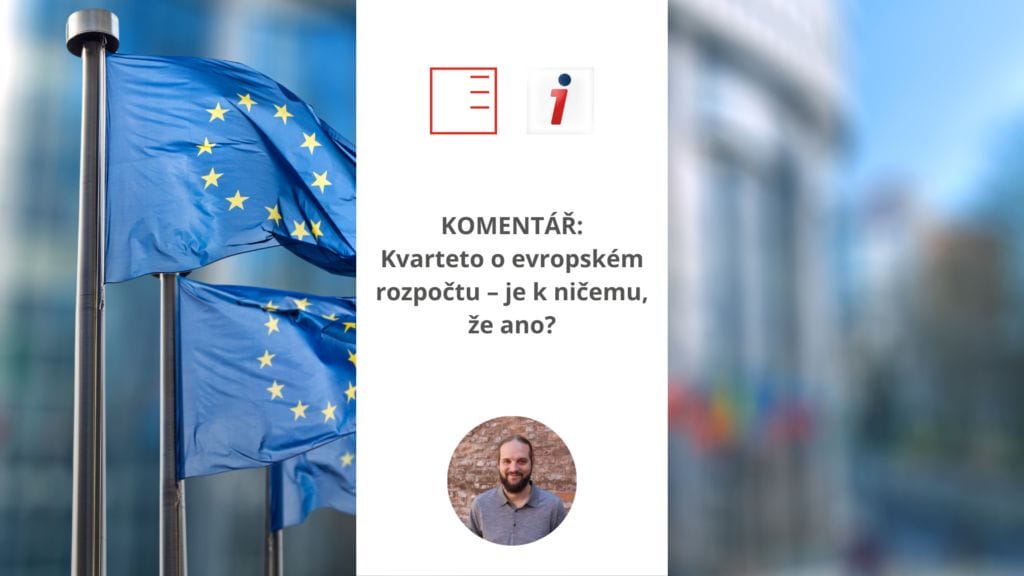
iDnes.cz | COMMENTARY: Quartet on the European budget - it is useless, isn't it?
Along with the discussion of the revision of the seven-year budget of the European Union (EU), statements that the budget is too big and unnecessary have once again appeared in the public space. Moreover, the EU is now borrowing to run itself because it is unable to make ends meet. It is worth recalling what the EU budget is for and why it is important to have one, writes Vít Havelka, a researcher at Europeum.